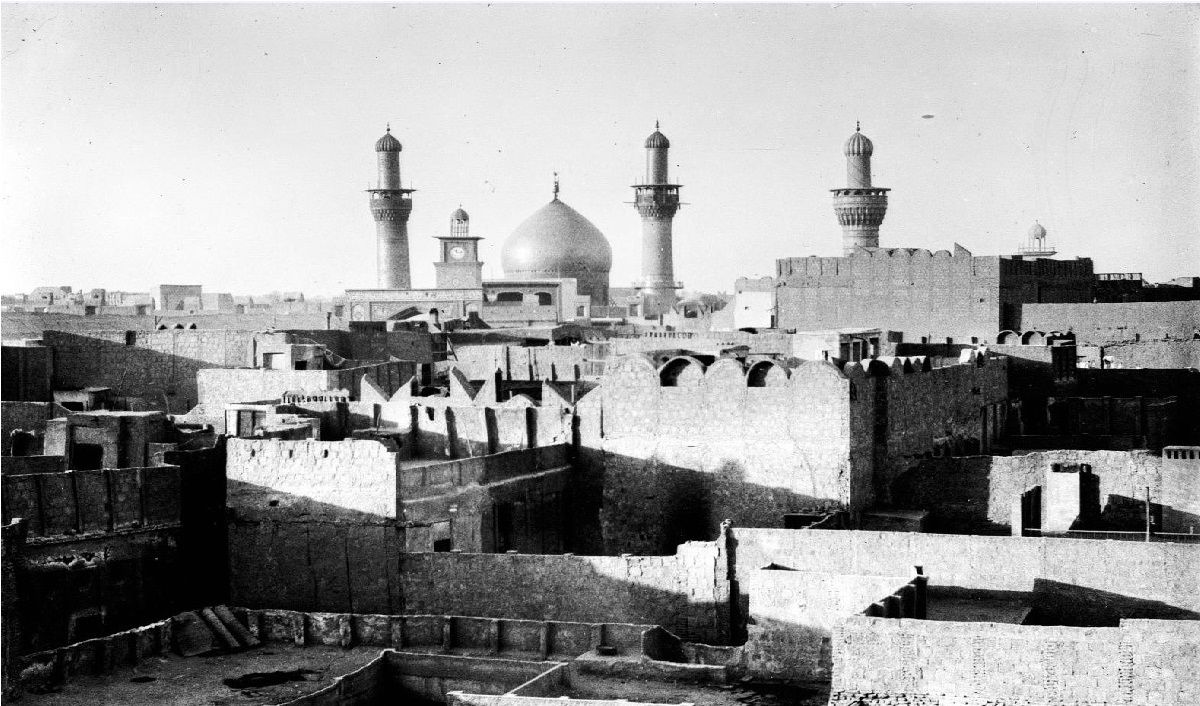When the World War II broke out in 1939 AD, the people of the holy city of Karbala rejected the policy mandated by Nuri al-Saeed's government to involve Iraqi forces in the war to support his British allies instead of seeking solutions to the unresolved problems accompanied the the war, most notably the economic crisis that struck Iraq then.
In April 1941 AD, a military movement took place in Baghdad under the leadership of Rashid Ali Al-Kilani, which resulted in the formation of the National Defense Government. The new government announced that its policy is based on not involving Iraq into the dangers of war, as this announcement has stirred national enthusiasm in the holy city of Karbala so much that shown support and assistance of clerics in Karbala as well as given fatwas urging people to stand by this government.
Ayatollah Sayyid Abdul Hussein Al-Shirazi issued a fatwa requiring action to support the Iraqi army and the national government, headed by Rashid Ali Al-Kilani. Therefore, the scope of support for the government has massively expanded. On May 4, 1941, the Arab Youth Association or " Jameiat Nadwat Al-Shabab Al-Arabi', held a meeting in the holy shrine of Imam Al-Abbas attended by many of Karbala supreme figures to discuss the current situation in the country. The meeting began with a speech by the association’s representative, Sayyid Muhammad Mahdi Al-Wahhab Al-Toa'ma, which sparked the enthusiasm of the people of the city to support the movement in every way possible.
At the end of the meeting, the assembled organized and sent a telegram to the new government, declaring their support and loyalty, as well as readiness to defend the homeland and its dignity. As the meeting ended, the people of Karbala went out in a protest reached every street of the city.
Other meetings were held on April 9 and 12 of the same year in the holy shrine of Imam Hussein "peace be upon him", with contributions and activities that showed the patriotic side of the city.
The leading role of the supreme religious authorities had a clear and important effect in fueling the enthusiasm of Karbala. As speeches and fatwas of the great clerks such as Sayyid Abdul-Hussein Al-Shirazi and Sayyid Hussein Al-Qummi Al-Tabatabai, were given during the meetings, so people went to collect donations and subsidies that included cash and jewelry. They also formed a defense committee to confront the exceptional cases that the city might face.
After the movement failed, the holy city of Karbala had its share of arbitrary measures against the patriots who supported it. The government often locked them up into detention centers and prisons such as the infamous "Nuqrat Al-Salman" camp without any evidence or investigations. Some of those detainees were Sayyid Ibrahim Shams Al-Din Al-Qazwini, Sayyid Muhammad Salih Bahr Al-Ulum, and Sheikh Abdul-Mahdi Al-Qanbar, as well as Abdul-Amir Mohsen, Rafiq Ismail, and many others.
On the other hand, this heroic role had a great impact in pushing the government to change its policy towards the people and to adopt new policies based on winning over the clerics, obtaining their support, and forcing them to abandon their previous fatwas issued about Al-Kilani movement, yet these policies did not work at all with the supreme religious authorities in Karbala.
Source:
Mawsueat Karbala Al-Hadharia "Karbala Civilizational Encyclopedia", publication of Karbala Center for Studies and Research, Modern and Contemporary History, [Vol. 2, P. 454-459].

